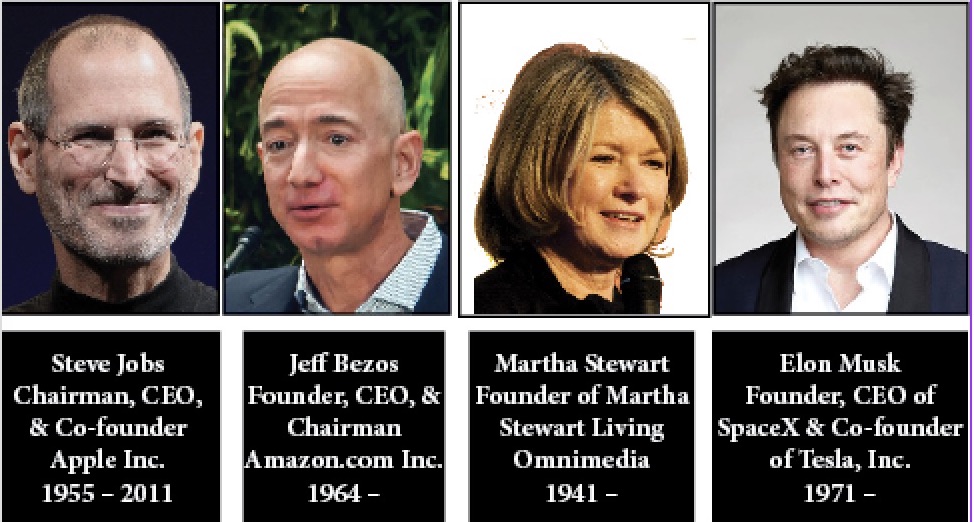
There is, of course, an overlap between those who are street smart and those who are book-smart. Many people of high IQ, like Ben Franklin were also students of human nature, so they were able to share their visions with others and achieve goals by persuading them to their causes. However, many book-smart people like Elon Musk, Jeff Bezos, Steve Jobs and Martha Stewart had significant difficulties dealing with others. (Visit: http://Chapter 8 (https://www.intelligence-and-iq.com/chapter-8/) for some interesting insights into their personalities.)
Why do some of the brightest minds seem to lack social skills? Highly intelligent people are often possessed with a passion for something that inspires them to a special vision. The uniqueness of this vision isolates them from the rest of humanity, who regard such dreams as unrealistic or unachievable. Who would have believed that a teenager named “Steve Jobs” could create a computer in his garage that would launch the home computer revolution? Who shared Jeff Bezos’ early vision of a shopping mall in cyberspace or would have believed that Elon Musk could launch a rocket into space. Living with a vision that no one else shares is a lonely existence–an isolation that is not amenable to the development of people skills.
However, those who are similar to everyone else in their perceptions can self-reference to understand how others think and feel. If they are reasonably intelligent and observe humans carefully, they can learn what psychologists call “interpersonal skills”–more popularly called “people skills.” Furthermore, if they are somewhat introspective and come to understand their own strengths, fears, insecurities and vulnerabilities, they can develop what psychologists call “intrapersonal skills.” (Together, interpersonal and intrapersonal skills are called “emotional intelligence.”)
So called “street smart” people usually have high interpersonal skills and sometimes high emotional intelligence. Such people are extremely successful in sales careers, because they know what people want, they know how to win their trust and they know how to close a sale. In its most laudable form, interpersonal skill manifests as empathy and compassion and is particularly valuable in care-giving careers such as counselling or nursing. In its less admirable form, it is manifest as a tool for manipulating people in a Machiavellian way. People of modest IQ can develop street smarts because it is acquired through observation rather than deductive thought. So-called “con artists” are usually quite adept at winning the trust of people by tapping into their greed, their dreams or their gullibility. When high IQ and high emotional intelligence come together in a single person, we see the emergence of wisdom–the kind of cognitive power modeled by Socrates, Confucius, Plato, Buddha, Nietzsche and several other celebrated philosophers. Wisdom comes from the amalgamation of emotional intelligence–skills acquired through careful observation of behavior–and rational intelligence (IQ) that synthesizes these observations into more general concepts. History has taught us that wisdom does not necessarily bring us happiness, but it usually brings a measure of tranquility.
